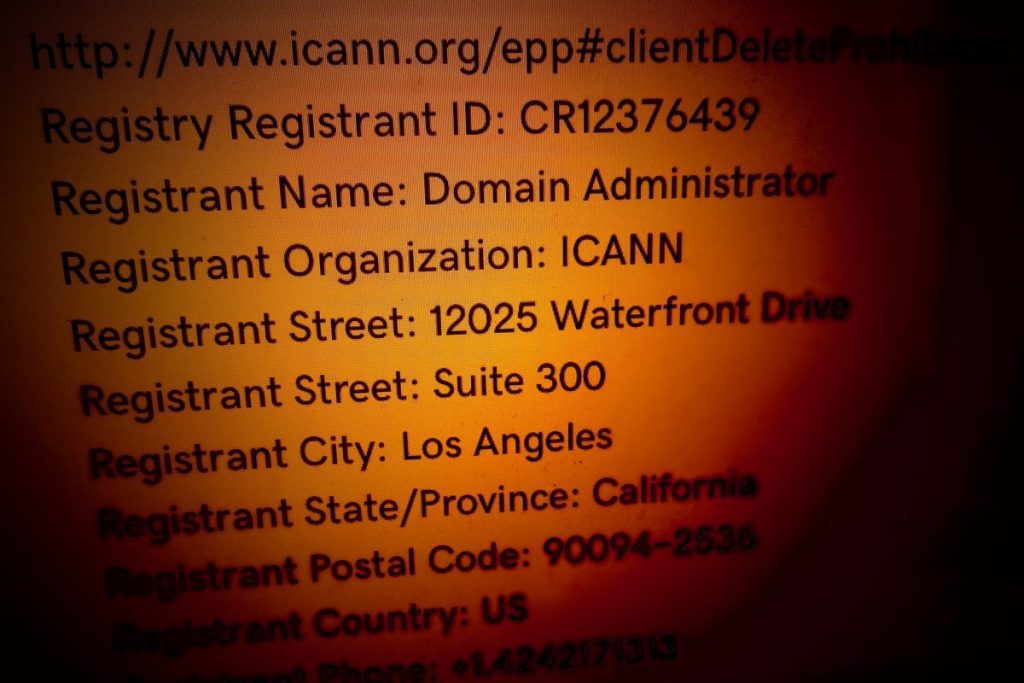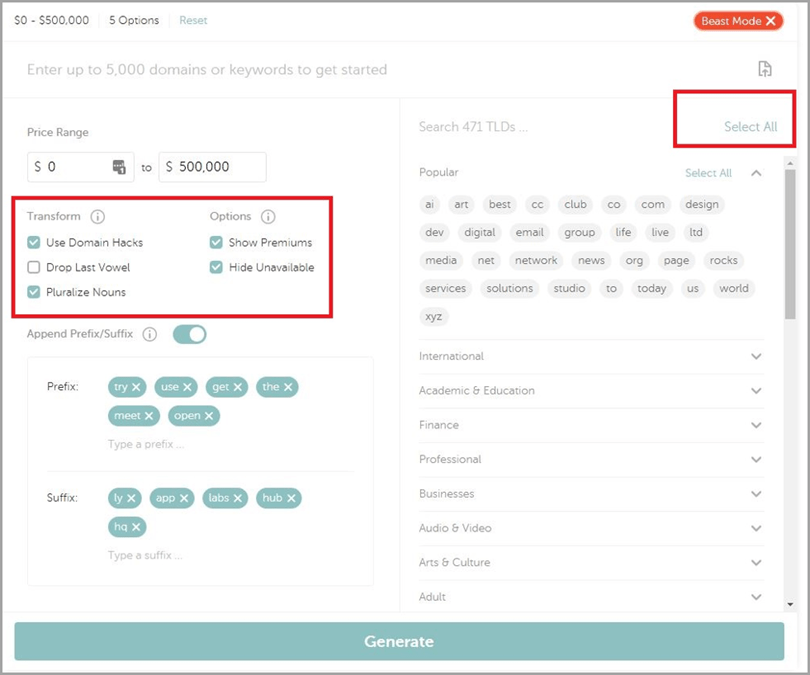
One of the first things you’ll need if you’re starting your website is a website name. It’s also called a domain name.
You can head over to your favorite domain registrar and type in the domain name you’re interested in. The domain can be yours with only a few clicks of a button as long as it’s available. That’s how easy it is to purchase and register a new domain. The real work, though, comes before making the purchase. If you want to register a unique domain name that will set you or your business up for success, consider the points listed below.
1. Carefully Think About Domain Name Ideas Before Committing To One

A domain name will be the foundation of your website. It should effectively share your brand vision. That being said, you have to give yourself ample time to think over the possibilities for a great domain name. Your first domain name idea may not be the best one. It’s important to come up with several options before you commit to one. Remember that the domain name must convey what you want the customers to perceive. The domain name idea should convey the intended message.
2. Check Your Domain Name’s Spelling

Give your domain name maximum impact with these smart, expert tips.
Brainstorming domain name ideas is only the first step. You also have to decide the words to use or the spelling of your domain name. Take great care in doing so and make sure that what you choose embodies your business values. It’ll be easy for new customers to find and remember your website if the domain name is easy to spell and type.
Avoid domains that are too long or contain an abbreviated stream letters, numbers, or hyphens. Try to find that sweet spot between a realistic spelling and length of your domain name.
For instance, if your business name is Sweetaps Food Corner, SFC.com may be impossible to purchase at a reasonable price. It’s, however, not a good idea to use sweetapsfoodcorner.com as it’s too long and prone to typing errors. Basically, what you want is something that will be easily typed, found, and remembered. And, the domain name should be available for registration.
3. Top-Level Domain Extension
The domain extension refers to your domain ending. For example, for GadgetZen.com, the domain name is GadgetZen. The ending (.com) is the domain extension. And, .com is a TLD or a top-level domain ending. TLDs were originally created to categorize domains and increase the number of available domains for the public. As a result, two websites can have the same domain name even if they’re completely separate. There are many options for TLDs such as .uk, .gov, .edu, or .org. The .com, though, is still the most widely used and preferred. The .mil and .gov extensions are restricted for use by the government and military agencies. Check if there’s a new and premium TLD that fits your brand. More domain names can be available if you go for new domain extensions instead of traditional ones like .com. New extensions also offer you a chance to create a URL that’s unique and allows your website to make more conversions. Please take note that the prices of domain names differ based on the domain extension.
4. Protect Your Privacy

Protect yourself and your business by opting for privacy. If you don’t opt for privacy, the details of your domain are actually published in WHOIS after you register it. What’s WHOIS? It’s a query and response protocol widely used for querying databases. The databases contain details of registered assignees or users of an internet resource like an IP address block or a domain name. Email address, home address, phone number, and your full name may get published in this publicly accessible database. Ask your domain registrar to disable this feature or do it yourself. Keep in mind that they shouldn’t charge you an extra fee to do so.
5. Make Sure You Won’t Infringe On An Existing Trademark
If your domain name is very similar to an already trademarked brand or content, it can mean big trouble down the road. No matter how perfect, brilliant, and one-of-a-kind your domain name is, it’s possible that it’s not unique. To make sure you’re not infringing on someone else’s intellectual property, do your research before finalizing your domain name. You can use the website of the U.S. Patent And Trademark Office to do in-depth research. A quick Google search is also a good place to start.
6. Social Media

Social media has undoubtedly become a vital tool for every business. This is particularly true for business websites. That’s why social media is one of the essential things to consider when registering a new domain name.
Check important social networks such as Twitter and Facebook for the availability of an account which is the same or similar as your domain name..
Conclusion
Registering a domain name is a crucial part of launching your website and having a web presence for your business. It marks the start of your online journey, allowing you to create not only a website but also a business email address. It’s important to brainstorm domain name ideas and select a domain name that is easy to spell, type, and remember. Select the domain extension based on your business type and opt for whois privacy. Check for trademark issues beforehand and try to get social media handles similar to your domain name. Consider the things discussed in this post to make the process of registering a new domain a successful one.




